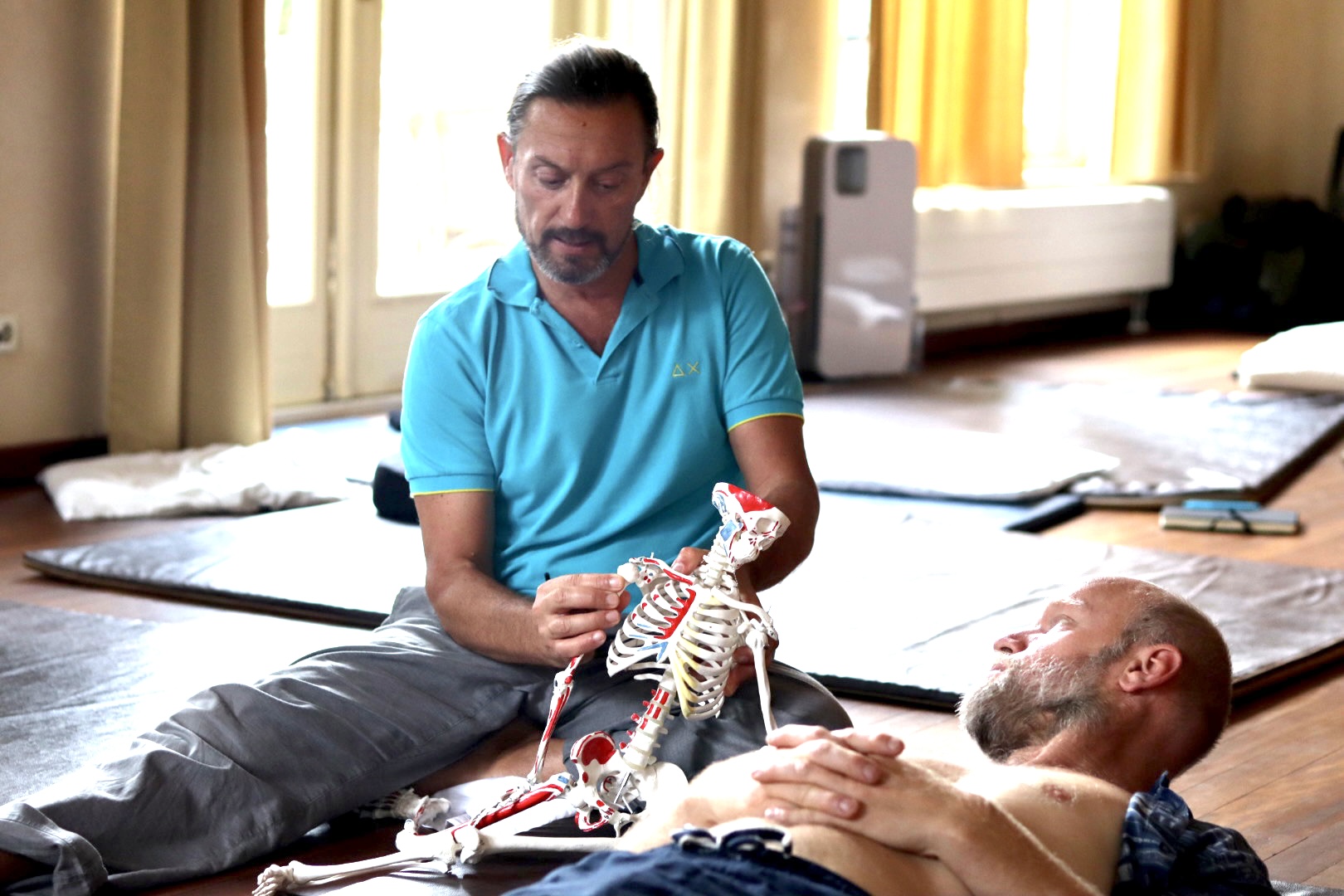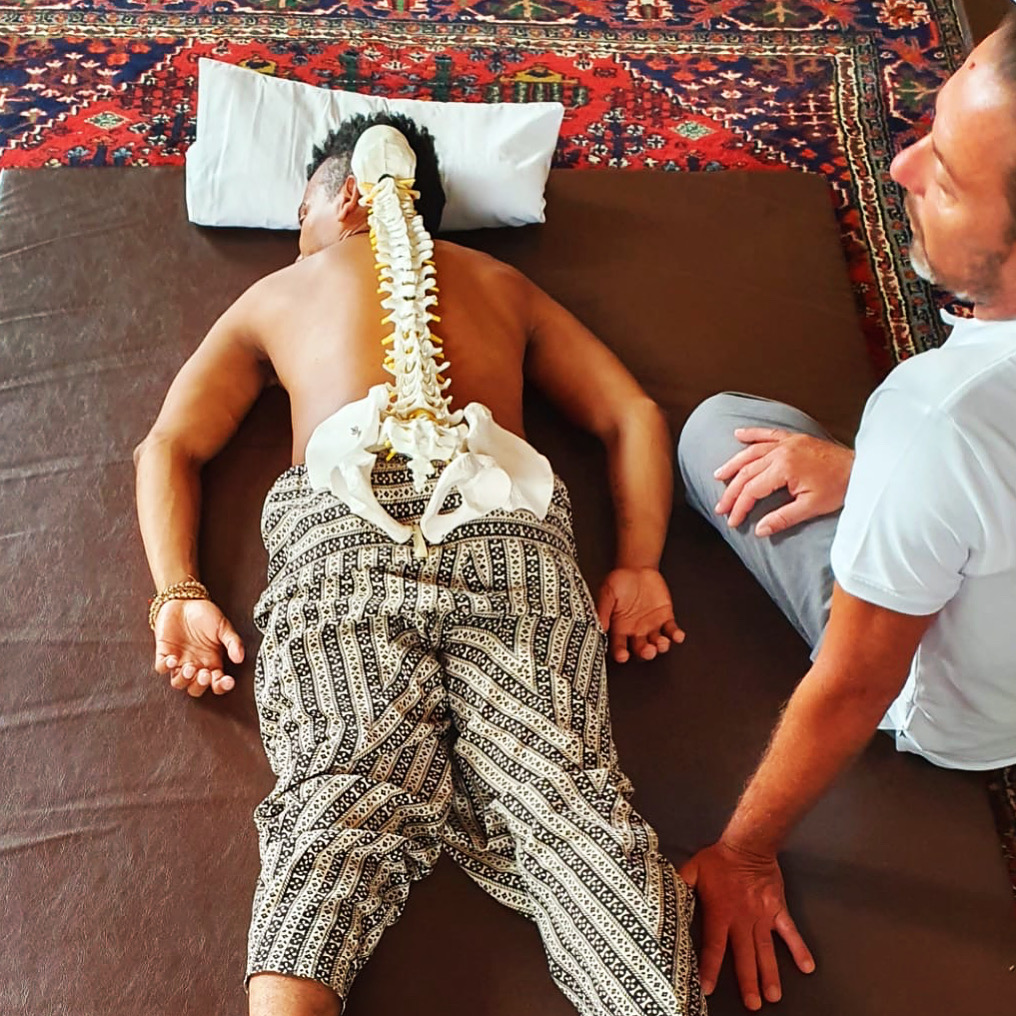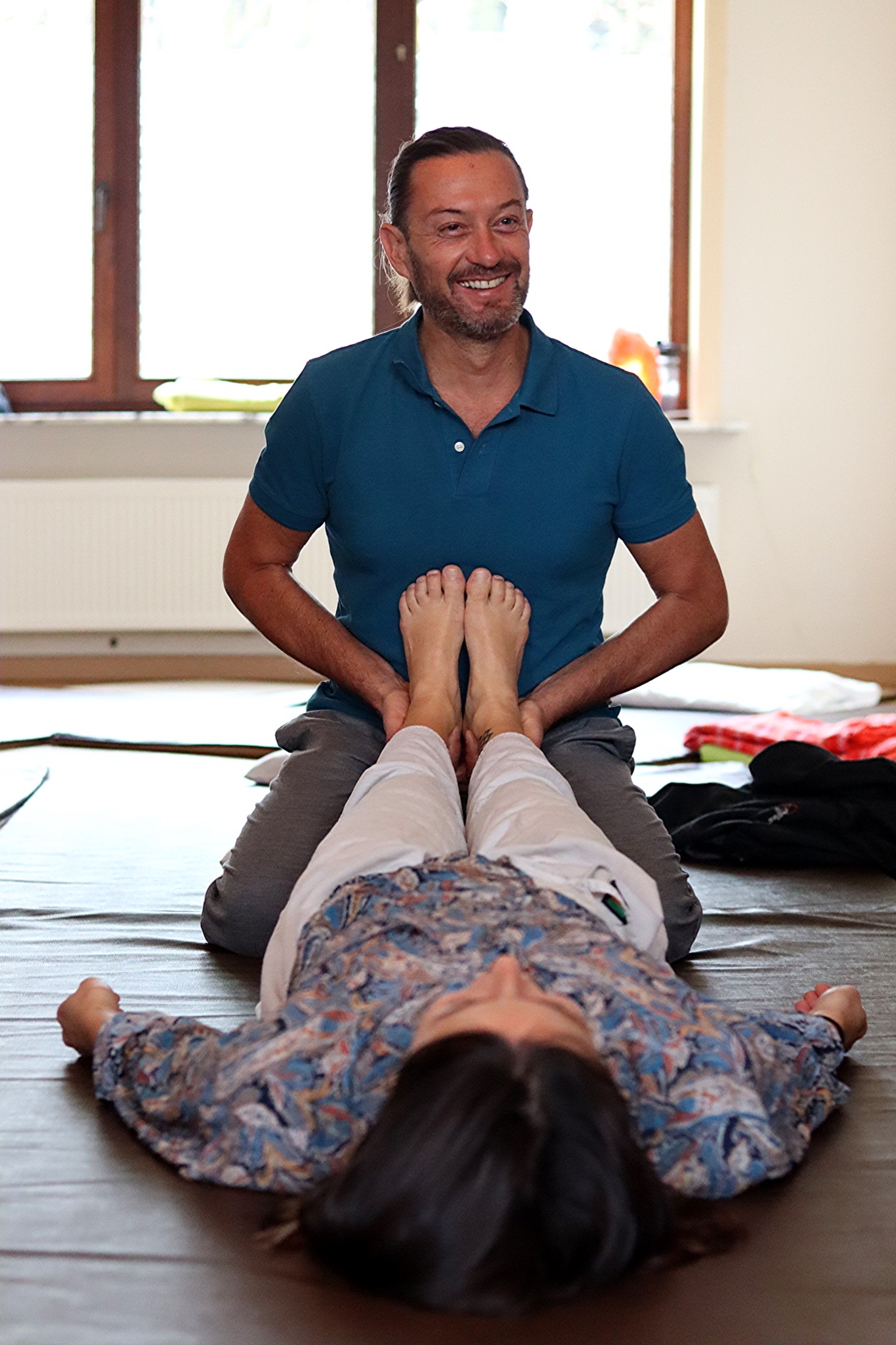
These two consecutive 5-day courses are essential steps for all students, from beginners to advanced practitioners, who want to increase their knowledge, tools, and palpation skills for clinical practice.
Thai massage is rooted in mindfulness and metta, and in these courses, we not only experience the beauty of the practice but also deepen our understanding of how to engage in a silent dialogue with our clients. We learn how to respond to the true needs of the receiver and how to navigate the complexity of the human body.
Clear communication is essential in clinical practice, and these courses aim to fine-tune our sensory and palpation skills while developing a supportive and informative mindset. With these qualities, we can better understand and meet the needs of our patients.

These two courses have been designed with the aim of providing a clear framework for organizing a Thai Yoga Massage session while also integrating western osteopathic approaches.
The courses will cover the following topics:
- The Structure of a Session
- Observing the client’s body
- Preparing and warming up the client’s body
- Identifying areas of tension and density
- Integrating different techniques
- Observing Misalignments and Imbalances in the Body
- Functional Anatomy and Biomechanics of the Main Joints
- Theoretical and Practical Approaches to Thai Yoga Massage
- Understanding the layers and levels of palpation
- Precise details in classical stretches, pressures, blood stop techniques
- Mobility techniques for improving Range of Motion
- Techniques for addressing reciprocal tension and harmonic rhythmic techniques
By the end of these courses, participants will have a solid understanding of how to structure a Thai Yoga Massage session, as well as the skills necessary to integrate western osteopathic approaches. They will also have developed a deeper understanding of functional anatomy and biomechanics, as well as techniques for addressing misalignments and imbalances in the body.




